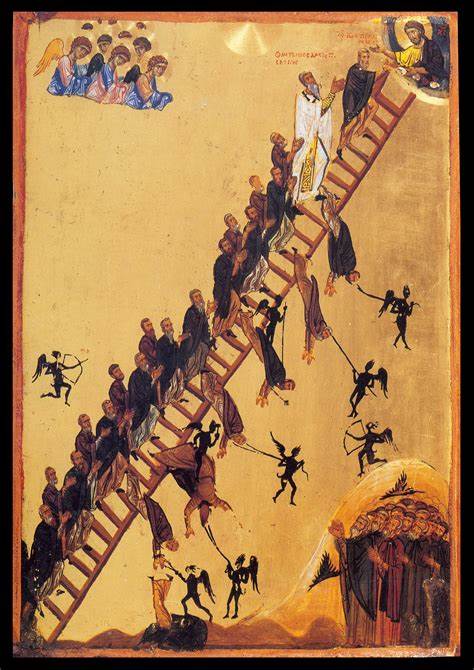- Feb 5, 2002
- 185,717
- 68,303
- Country
- United States
- Gender
- Female
- Faith
- Catholic
- Marital Status
- Married
- Politics
- US-Others
Fr. Dwight Longenecker
Why I Believe in Purgatory
Being raised in an Evangelical Protestant world I was taught to reject the belief in purgatory for three reasons. First, it isn’t in the Bible. Second, we are saved by “Faith alone” and purgatory smacks of earning your salvation. Third, we believed in the Calvinist doctrine of eternal security IOW “once saved always saved” and purgatory seemed like “getting a second chance.”
As I moved into Anglicanism and closer to the Catholic faith the Protestant doctrine of “sola Scriptura” – Bible alone–began to disintegrate. It became increasingly clear that people didn’t really believe sola Scriptura. They believed their denomination’s or their personal interpretation of the Bible. This being the case, where was the proper authority for interpreting the Bible? The logical choice was not Pastor Bob at the local Baptist Bible Church or this denomination of that one, but the Church to whom the Epistles of St Paul were written and who eventually determined the canon of the Scriptures in the first place.
There were clearly some practices and beliefs in Christian practice that were not specifically stated or mandated in the Bible. The doctrine of the Holy Trinity was the big one, but it didn’t take much imagination to see that there were all sorts of Christian beliefs and practices in every denomination that developed from traditions and local customs and beliefs. Teetotalism, for example.
Next I had to look at the doctrine of “salvation by faith alone”. In addition to the famous verse in the epistle of James: (faith without works is dead) one had to account for the numerous verses throughout the old and new testaments that spoke of the importance of one’s good works (or lack of) at the judgement. The most famous passage is Matthew 25–the parable of the sheep and goats being judged according to their works of charity. Clearly, while one wasn’t saved by good works one could not ignore the role of works in one’s final judgement.
Finally, was it really true that once a person was “saved” they had their ticket to heaven no questions asked? It seemed not only too good to be true. It seemed to contradict common sense. It made more sense that if a person could engage their free will to accept God’s gift of salvation they might also, at a later date, use that same free will to reject the gift they had accepted. The Catholic Church taught that a person might fall into “mortal sin” and thus turn away from God and turn toward eternal separation from his love.
Continued below.

 dwightlongenecker.com
dwightlongenecker.com
Why I Believe in Purgatory
Being raised in an Evangelical Protestant world I was taught to reject the belief in purgatory for three reasons. First, it isn’t in the Bible. Second, we are saved by “Faith alone” and purgatory smacks of earning your salvation. Third, we believed in the Calvinist doctrine of eternal security IOW “once saved always saved” and purgatory seemed like “getting a second chance.”
As I moved into Anglicanism and closer to the Catholic faith the Protestant doctrine of “sola Scriptura” – Bible alone–began to disintegrate. It became increasingly clear that people didn’t really believe sola Scriptura. They believed their denomination’s or their personal interpretation of the Bible. This being the case, where was the proper authority for interpreting the Bible? The logical choice was not Pastor Bob at the local Baptist Bible Church or this denomination of that one, but the Church to whom the Epistles of St Paul were written and who eventually determined the canon of the Scriptures in the first place.
There were clearly some practices and beliefs in Christian practice that were not specifically stated or mandated in the Bible. The doctrine of the Holy Trinity was the big one, but it didn’t take much imagination to see that there were all sorts of Christian beliefs and practices in every denomination that developed from traditions and local customs and beliefs. Teetotalism, for example.
Next I had to look at the doctrine of “salvation by faith alone”. In addition to the famous verse in the epistle of James: (faith without works is dead) one had to account for the numerous verses throughout the old and new testaments that spoke of the importance of one’s good works (or lack of) at the judgement. The most famous passage is Matthew 25–the parable of the sheep and goats being judged according to their works of charity. Clearly, while one wasn’t saved by good works one could not ignore the role of works in one’s final judgement.
Finally, was it really true that once a person was “saved” they had their ticket to heaven no questions asked? It seemed not only too good to be true. It seemed to contradict common sense. It made more sense that if a person could engage their free will to accept God’s gift of salvation they might also, at a later date, use that same free will to reject the gift they had accepted. The Catholic Church taught that a person might fall into “mortal sin” and thus turn away from God and turn toward eternal separation from his love.
Continued below.

Why I Believe in Purgatory | Fr. Dwight Longenecker
Being raised in an Evangelical Protestant world I was taught to reject the belief in purgatory for three reasons. First, it isn't in the Bible. Second, we are saved by "Faith alone" and purgatory smacks of earning your salvation. Third, we believed in the Calvinist doctrine of eternal security...
